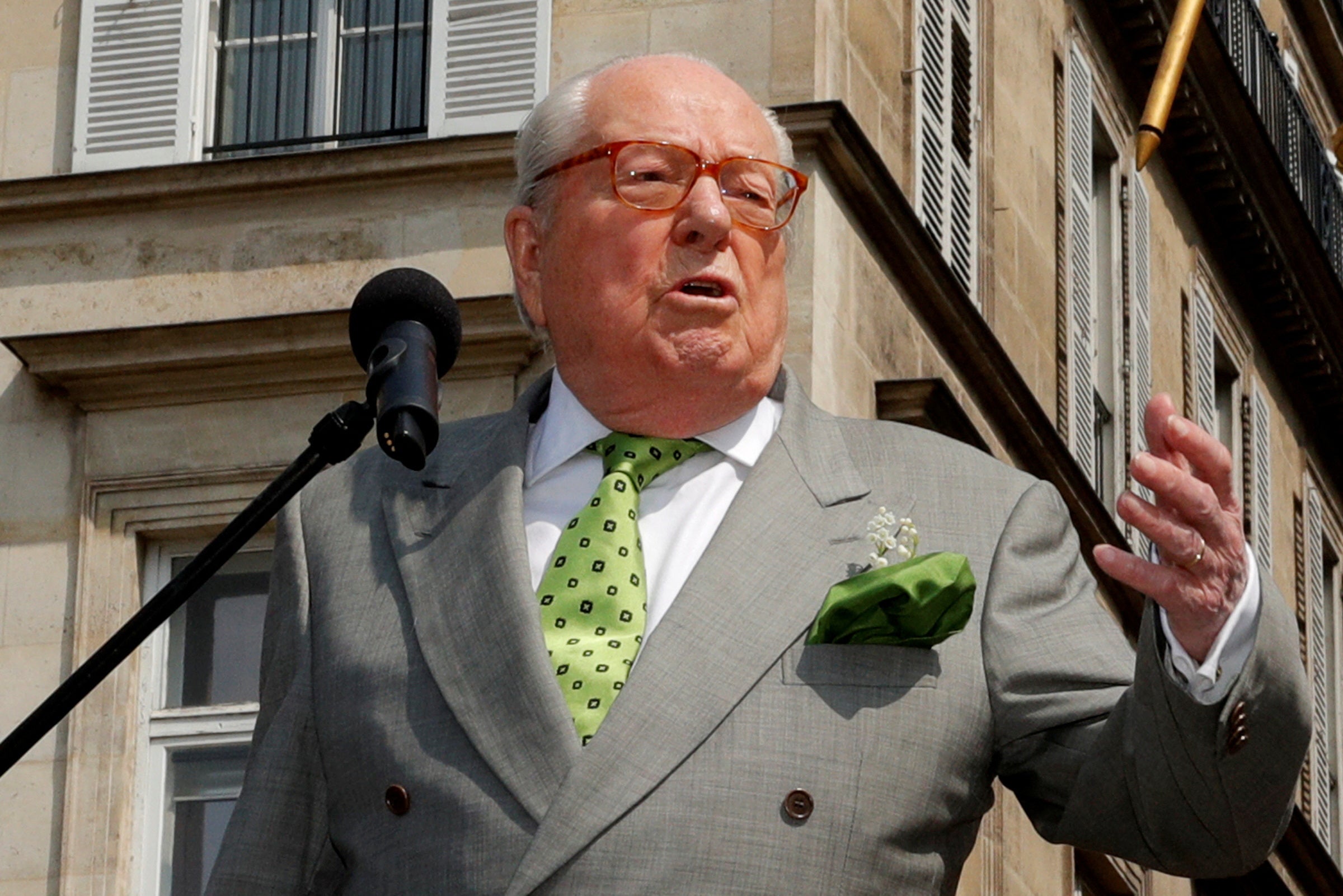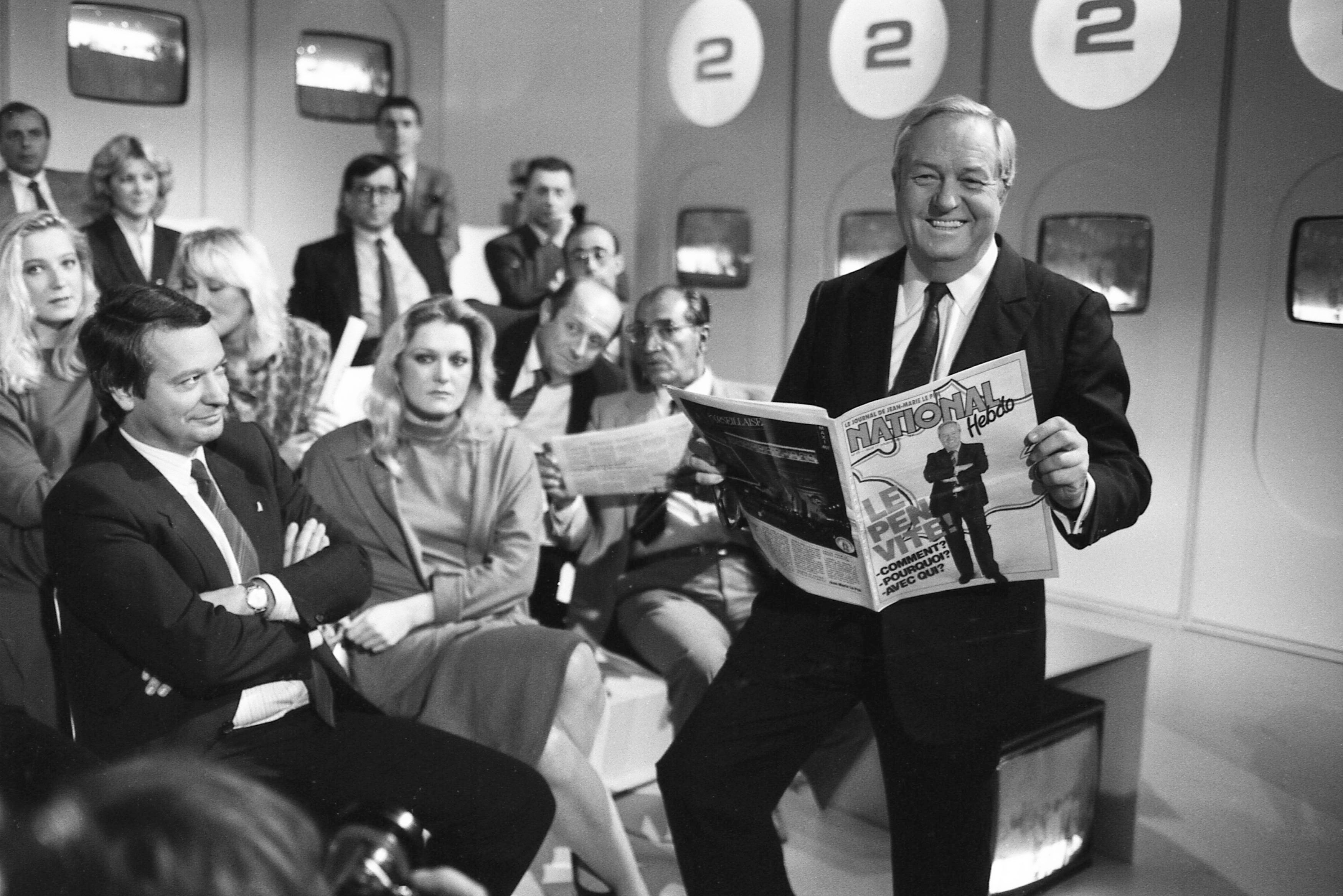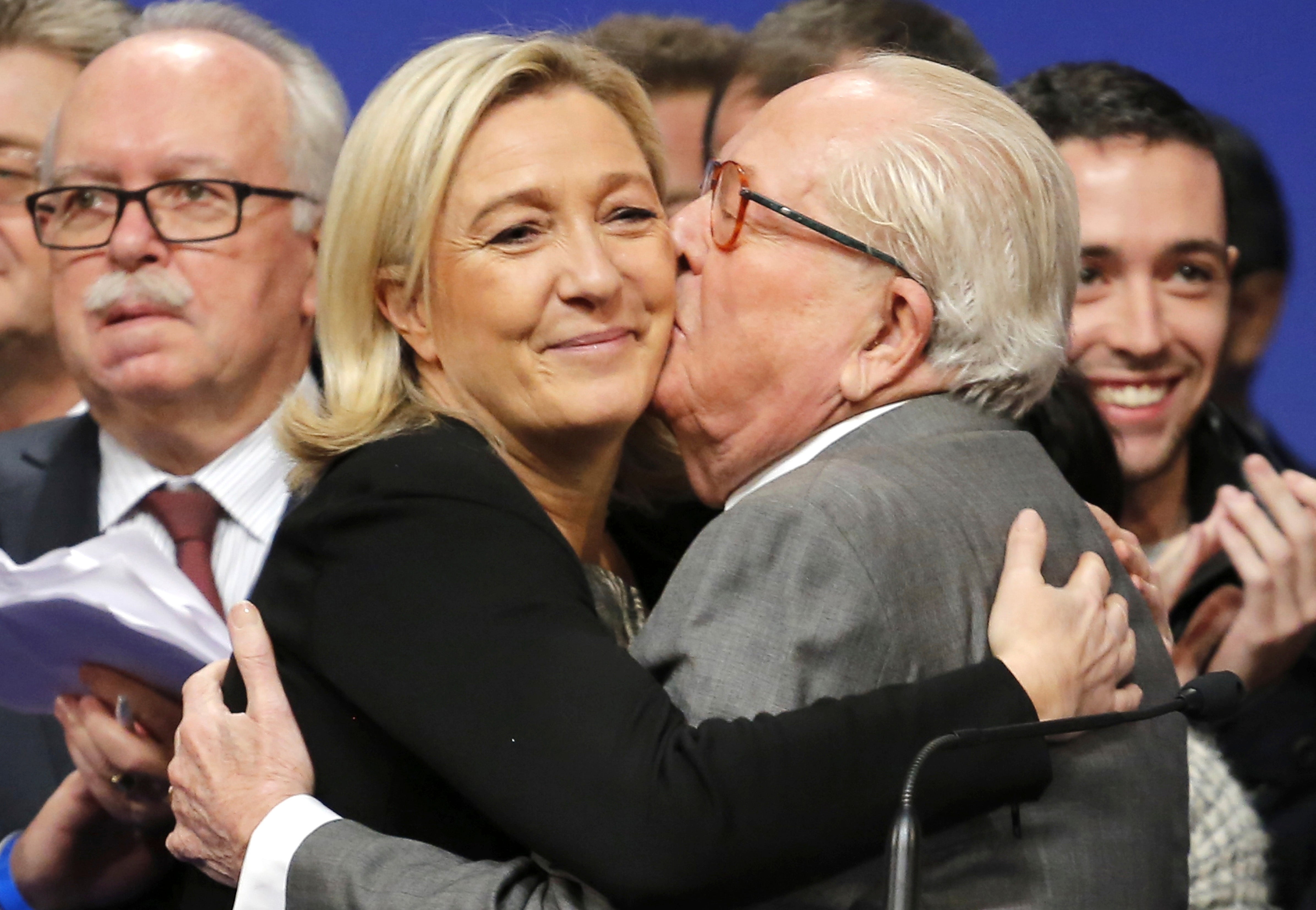Jean-Marie Le Pen, founder of France’s far-right National Rally (RN) party, has died aged 96.
Le Pen, who led the party for nearly four decades until 2011, when it was called National Front (FN), had previously been taken to hospital with suspected heart problems.
The former paratrooper founded the party in 1972 but it was only when he handed the reins to his daughter Marine Le Pen in 2011 that his rebranded party really caught sight of power.
Ms Le Pen made efforts to distance herself from her father’s controversies since then, including his Holocaust denial and sympathy for France’s Vichy government, which collaborated with the Nazis.
Despite this, it has often been said Ms Le Pen’s “brutal” upbringing and family life under her father left a mark on her worldview and politics.
Here, The Independent takes a look at the history of the Le Pen family and how the National Front has changed over the years.

Born in 1928, Le Pen described himself throughout his life as “ni droite, ni gauche, français” - not right, not left, but French.
He came of age during the Algerian War between 1952 and 1962, where he served as a French paratrooper and resented former French president Charles de Gaulle for ending the conflict.
Ten years later, he founded the National Front which slowly grew in popularity over the years, going from 1 per cent in the 1974 polls to 15 per cent in 1995.
In 1987, he played down the Holocaust - Nazi Germany’s murder of six million Jews - by claiming it was a “detail” in the history of the Second World War and that he “never personally saw” the gas chambers.
By 2007, Le Pen had waned as a political star and came fourth in the presidential election. After a few years of soul-searching, he stood down and his daughter Marine took over in 2011.

Ms Le Pen was born on 5 August 1968 at Neuilly-sur-Seine, the youngest of Jean-Marie Le Pen’s three daughters.
The girls were raised in Montretout, a 19th century mansion on a hill overlooking the Seine that was gifted to their father him by a cement magnate supporter.
In 1976, when Ms Le Pen was eight years old, the family’s Paris apartment was bombed by her father’s enemies as the entire front of the building was blown open.
The bomber was never identified and the incident caused Ms Le Pen to be shunned by classmates at the Lycee Florent Schmitt in Saint-Cloud where she was studying, many of whom considered her “dangerous”.
She was elected as a regional councillor of Nord-Pas-de-Calais in 1998 and served until 2004, before winning the same office in Ile-de-France, in Nord-Pas-de-Calais again in 2010 and in Hauts-de-France in 2015, completing six-year terms in each case.

Ms Le Pen was also a member of the European Parliament between 2004 and 2017, a municipal councillor of Henin-Beaumont between 2008 and 2011 and succeeded her father as leader of the NF in 2011, securing two-thirds of the vote and seeing off a challenge from Bruno Gollinsch.
His daughter hoped to make the party electable, starting the process of moderating the worst of its racist, xenophobic and homophobic policies.
That rebranding or “dediabolisation” (de-demonisation) finally caused her to suspend and then expel her own father in 2015 over his Holocaust denial.
In 2024, it looked as if her efforts might have worked. The party did well in the first round of voting - but was ultimately defeated in the final round.
Pollsters had widely expected National Rally to emerge as the largest party in France’s National Assembly but it was the leftist New Popular Front – comprising the Socialists, Greens, Communists and Jean-Luc Melenchon’s far-left France Unbowed (LFI) – which won the most seats.







